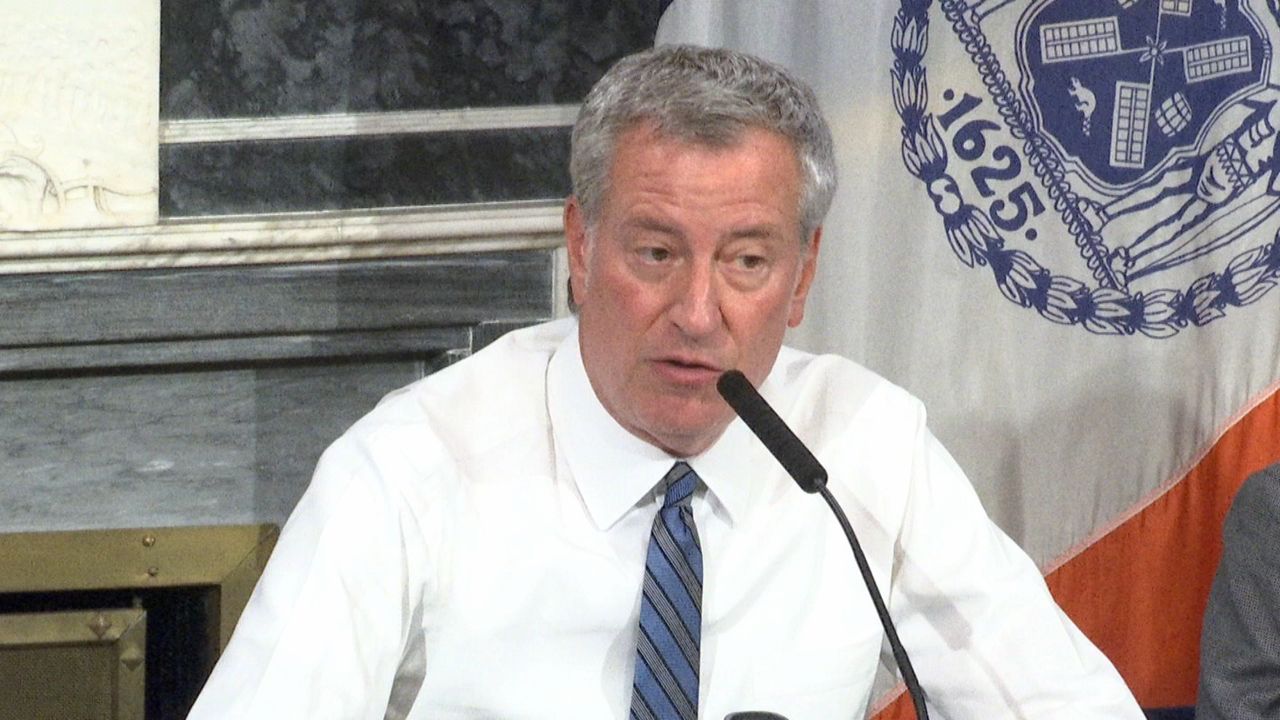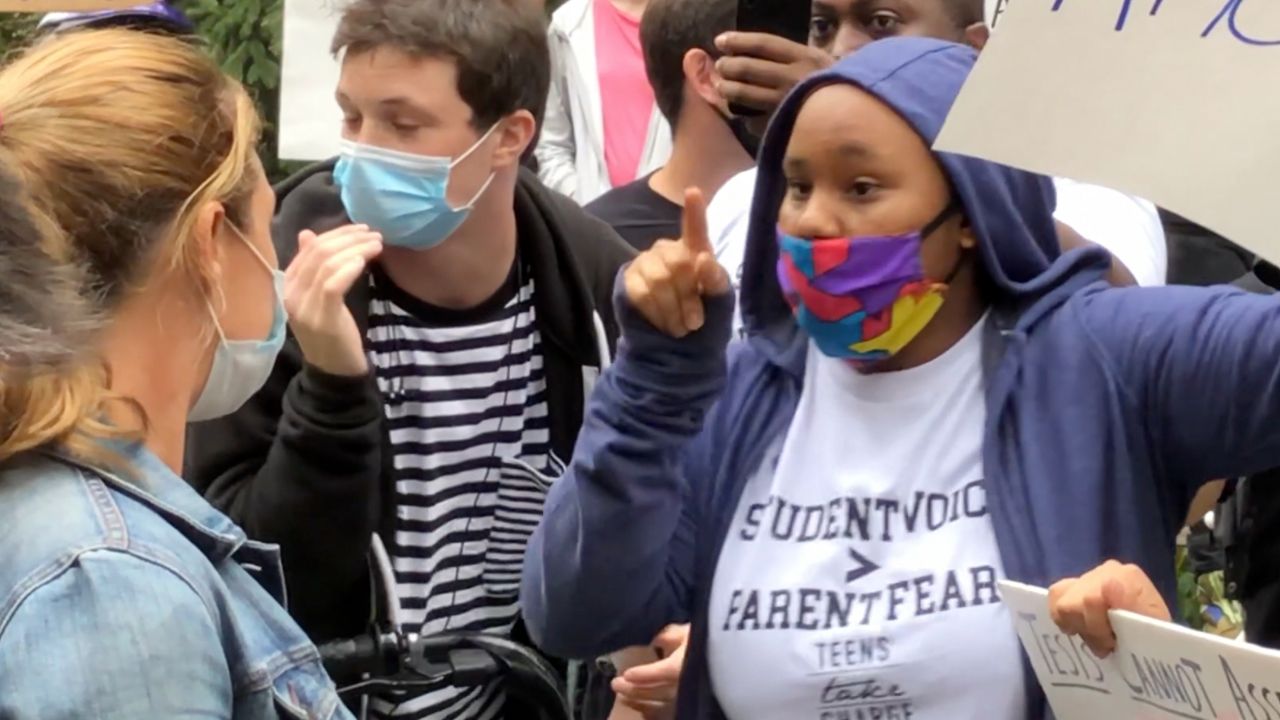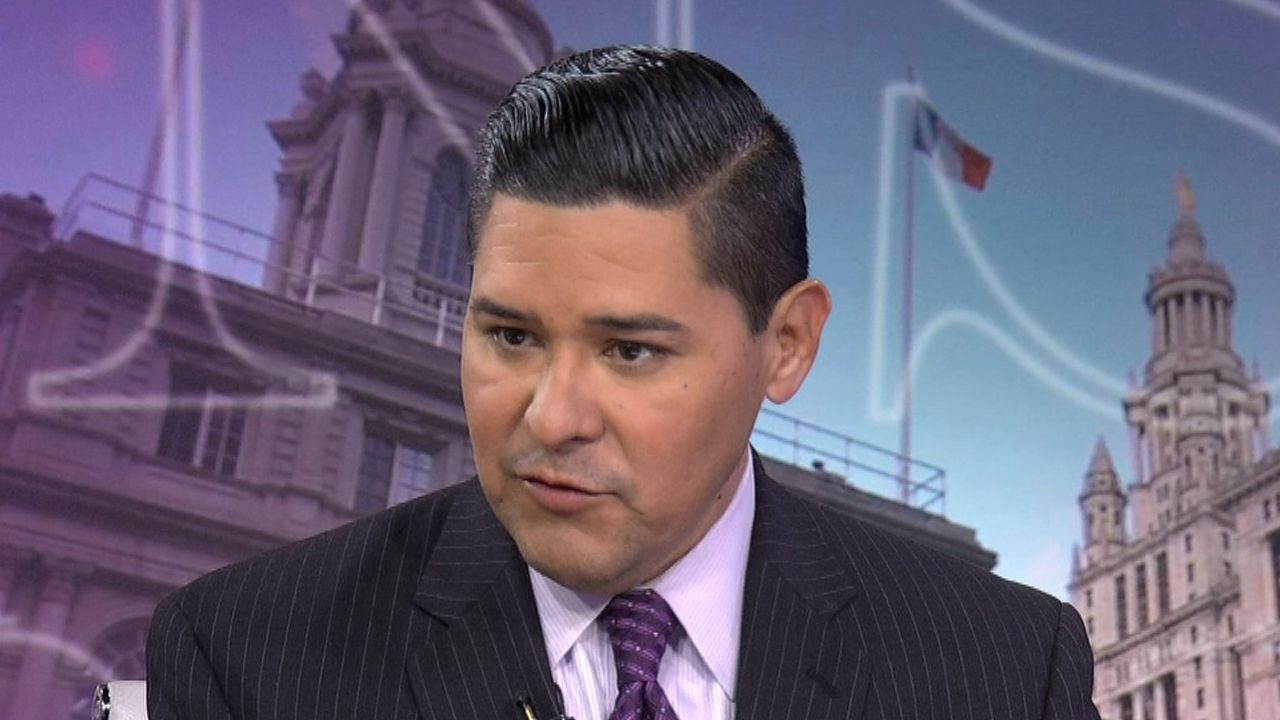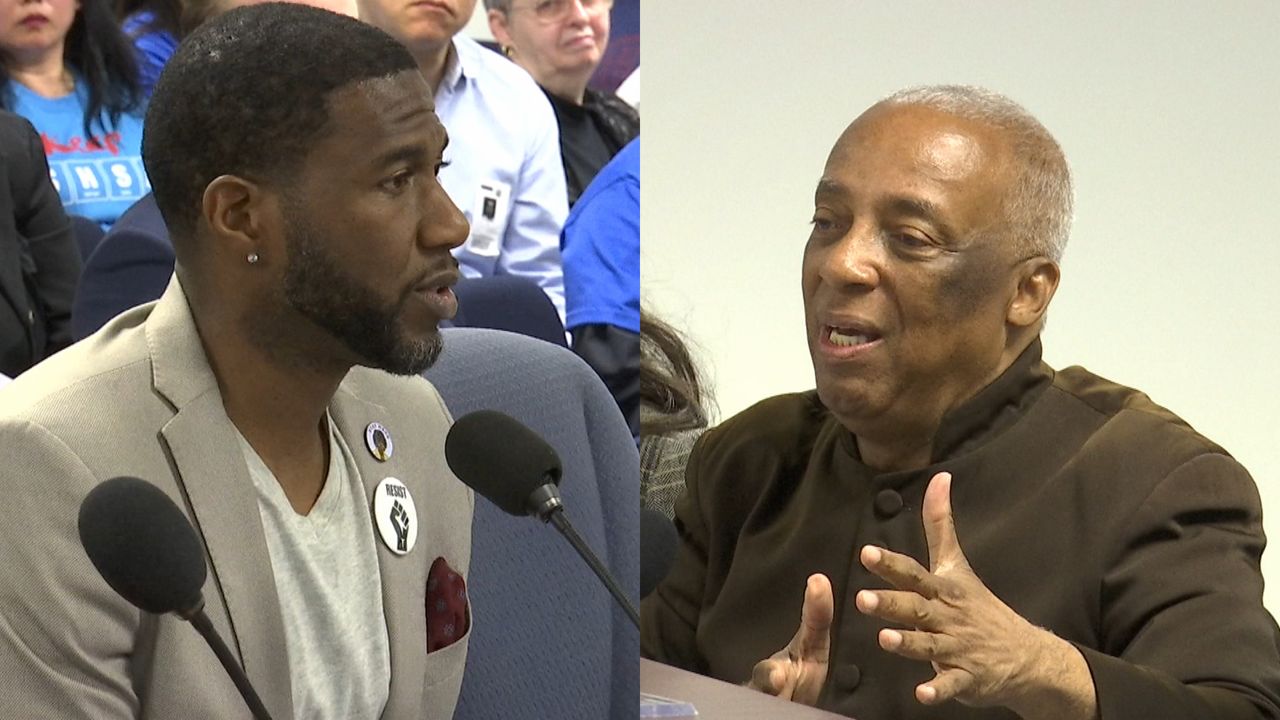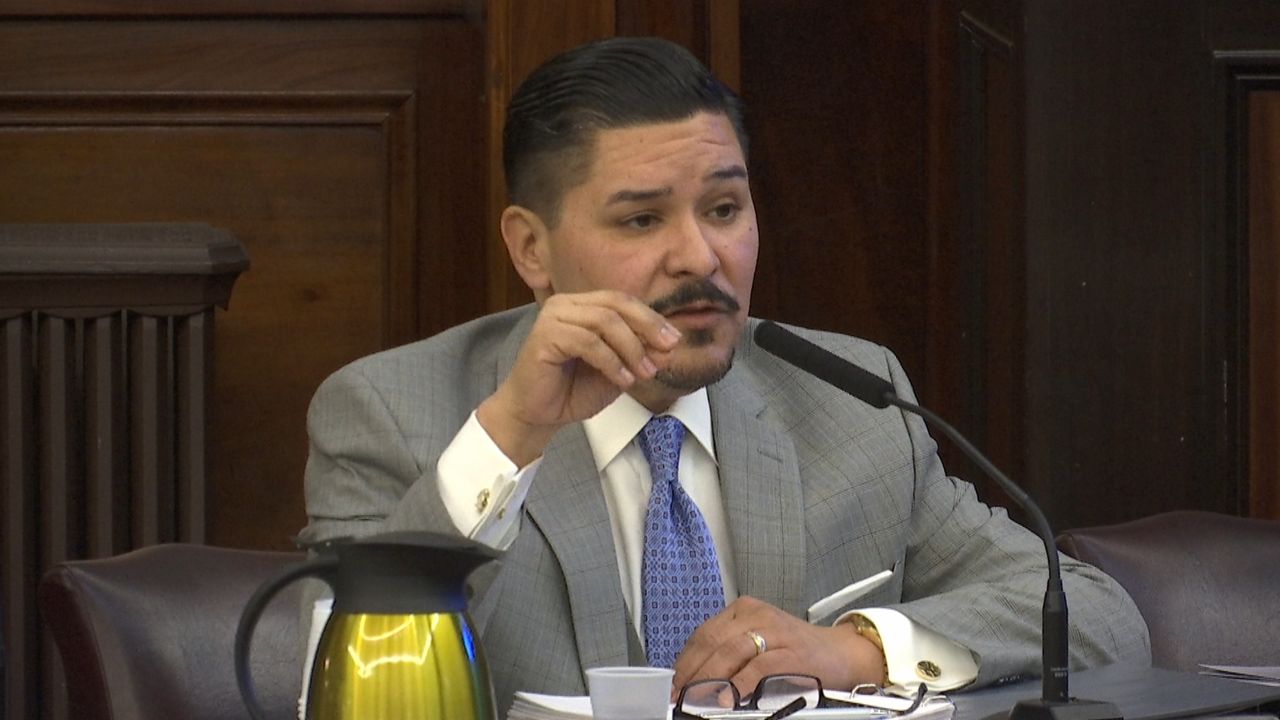Mayor Bill de Blasio admitted Wednesday that New York City's controversial plan to eliminate the specialized high school admissions test "didn't work," and indicated openness to keeping the exam.
Speaking in Manhattan at a roundtable for Spanish-language media, the mayor — along with Schools Chancellor Richard Carranza in an interview on Inside City Hall later in the evening — didn't provide further details and did not confirm if the city would scrap the plan. Instead, both said they want to hear alternative ideas while maintaining that they want the test to be eliminated.
The change in tune comes after more than a year of intense protests from exam supporters, who argue the current system is fair and say the city should instead focus on improving all schools. Asian American parents and groups have been particularly vocal, arguing the plan to scrap the exam amounts to racism and unfairly targets Asian students, who make up large shares of admissions to the specialized high schools. The city's elite public high schools, like Stuyvesant and Bronx Science, are largely Asian and white, even though black and Hispanic students make up most of the school system.
Earlier this year, a study by the city's Independent Budget Office said the elite schools would change under de Blasio's plan. The study found that the percentage of black students accepted would jump to 19 percent from 4 percent and the percentage of Hispanics would more than quadruple, to 27 percent from 6 percent. The percentage of Asian students would drop in half, to 31 percent from 62 percent. The number of white students would remain about the same.
Nearly 70 percent of public school students in the city are black and Latino, but just 10 percent gain access to the city's top high schools.
WHAT IS THE SPECIALIZED HIGH SCHOOL ADMISSIONS TEST?
Students in eighth or ninth grade who want to apply to one of the city's eight specialized high schools — Bronx High School of Science, Brooklyn Latin School, Brooklyn Technical High School, High School for Math, Science and Engineering at City College, High School for American Studies at Lehman College, Queens High School for Sciences at York College, Staten Island Technical High School, and Stuyvesant High School — must take the exam.
The 180-minute test scores potential students based on English Language Arts and math. Test-takers are then ranked based on their scores for the number of questions they answer correctly. If admitted, the student is assigned to a specialized high school based on how he or she ranked the school on the application, the priority the student assigned to the school, and the seats available.
Tens of thousands of students apply to the schools every year for 5,000 seats.
NO MOVEMENT TO END THE SHSAT
De Blasio and Carranza's plan hasn't made any traction in the New York state legislature. To scrap the SHAT at the Bronx High School of Science, Brooklyn Technical High School, and Stuyvesant High School, the mayor needs the legislature's approval, as those three schools are required by law to admit students based only on the exam.
But most state lawmakers have shown no interest in eliminating the SHSAT. They have listened to alumni interest groups from the schools and have said that the exam is the fairest way to determine who should be admitted.
The powerful alumni groups from the specialized high schools have successfully lobbied for decades to keep SHSAT. Some have argued that opening up admissions at the specialized schools would weaken them. De Blasio has said that argument is un-American.
Instead, the city has taken action on its own by expanding a program, the Discovery Program, to help low-income students gain entry to these top high schools. 20 percent of seats at specialized high schools will be set aside for students from high-poverty middle schools who fall slightly short of the admissions test cutoff. De Blasio wants the top 7 percent of students from every middle school admitted.
The specialized high schools rely solely on SHSAT to admit students every year. The cut-ff for admissions varies from school to school.
De Blasio has always said that, philosophically, he has been opposed to the way the specialized high schools chose their students, but he didn't support ending the SHSAT until June 2018, after intense pressure from some activists.
The mayor and chancellor have called the exam flawed and pointed to socioeconomic barriers — such as families not being able to afford tutors or test preparation courses — putting students from poorer families at a disadvantage in their efforts to be admitted to the specialized schools.
------
Looking for an easy way to learn about the issues affecting New York City?
Listen to our "Off Topic/On Politics" podcast: Apple Podcasts | Google Play | Spotify | iHeartRadio | Stitcher | RSS




